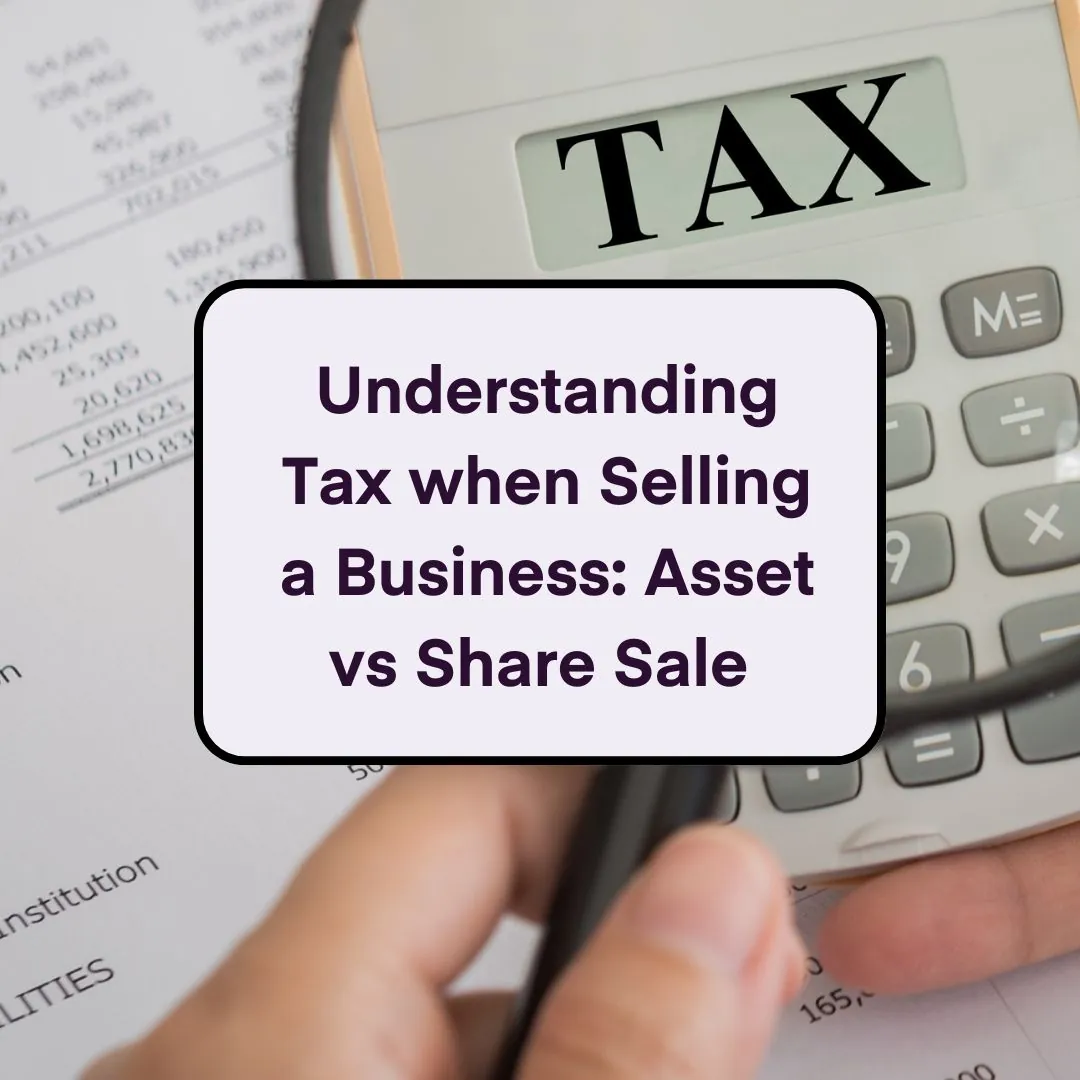
Sole trader meaning and advantages
7 Nov 2021If you are thinking about becoming self-employed and running your own business, you have some big decisions to make. One of the most important is the legal structure of your business and you have several alternatives. You can operate as a sole trader, work with other people in a partnership or form a limited company.
This article concentrates on the roles, responsibilities and advantages of a sole trader. The literal meaning of operating as a sole trader is that you are an individual who is totally responsible for your business. However, the situation is more complicated than that, so it’s important to also understand the responsibilities you have, compared with someone running a limited company.
There are many advantages of being a sole trader. However, choosing ‘sole trader’ as a structure will affect many aspects of your business, including your tax position, your personal remuneration, your legal liability and legal responsibilities. The decision is not a simple one, and many factors can influence your choice of business structure, so it may be important to take professional advice on the legal and financial implications of being a sole trader from some specialist sole trader accountants.
Simple business set-up
When you decide the time is right to open for business, you first have to set up as a sole trader. As this information on the government website shows, the process is relatively simple. You choose a business name, register your business with HMRC and submit an annual self-assessment tax return.
This process is much simpler than setting up a limited company, where you must register the name of your business with Companies House and register with HMRC for Corporation Tax. You will also have to provide an address for your Registered Office.
Additionally, you will need to create Articles of Association and file the document with Companies House when you register your company. This document sets out the share structure of your business and how you will govern it.
Start trading when you choose
Another advantage of being a sole trader is that you can start work when you choose. Although you have to register your business, registration doesn’t have to coincide with your start date.
If you were setting up a limited company, you would have to wait until registration was complete and you had received a Certificate of Incorporation.
You own the business — and the rewards
As a sole trader, you are the business, and this could be important if personal service is important to your customers. Customers know that they will be dealing with the ‘top person’ and won’t be handed off to another person with lesser skills.
In the same way, you get the rewards of your work. Any profit you make after business expenses and tax is yours to keep. You don’t have to share ownership or the profits with shareholders or other senior figures involved in the business.
Related: What is a shareholder’s agreement?
You are the decision maker
This may sound attractive but, for a sole trader, there are advantages and disadvantages. The reason you want to start your own business is probably because you have a certain skill set that you believe will win customers. In that sense, the decisions about how to work, who to work for and the type of services you want to offer are relatively easy to make.
However, there are many other aspects to running a business that are probably less familiar – how to raise or manage finance, how to select the right equipment for your business, how to market your services and how to manage your time and split it between administration and doing great work for your customers.
Related: Why is gift crowdfunding excellent for start-ups?
Be aware of personal liabilities
Although total responsibility for the business is one of the advantages of being a sole trader, that responsibility also comes with the risk of personal liability. You are personally responsible for any losses or debts owed by the business and you may have to use your own money to cover any debts. The personal financial risks are therefore much higher.
For owners of a limited company, the opposite is true. Directors and shareholders of a limited company have limited liability for any debts or losses incurred by the company. There is no personal liability and therefore less personal financial risk for owners.
Related: Statement of financial position – Example and guide
Build the business around your reputation
When customers are selecting a supplier, they take many factors into account, including cost, reputation and capacity. As a sole trader, you may have a strong cost advantage over your larger competitors because you have fewer fixed overheads and you can determine your own prices.
Reputation could also be an important advantage, particularly if you provide a specialist service that other businesses can’t offer. However, you may find it difficult to take on larger projects that require more resources. Customers might be concerned that you may not be able to provide a long-term commitment to a time-intensive project as you have no back-up resources.
Fewer reporting responsibilities
Financial reporting is important. Whether you are a sole trader or head of a limited company, you must keep track of your financial position so that you don’t unexpectedly run out of cash.
However, those reporting requirements are simpler for sole traders. While it’s good practice to create management reports and accounts, they are just for your own purposes and you don’t have to submit them to the authorities. Currently, you only have to submit final details of your income and allowable business expenditure once a year on your self-assessment tax return.
Financial reporting for limited companies is more demanding and time-consuming. They have to prepare and submit a full set or an abbreviated set of statutory accounts to Companies House in accordance with recognised accounting practice. They also have to report to any shareholders and hold an Annual General Meeting.
Fewer legal and administrative responsibilities
Although the financial reporting requirements are less demanding for sole traders, you are responsible for operating your business in accordance with the law. That means complying with any legislation that applies to your type of business as well as covering the business against legal action claims by taking out insurances such as public liability, product liability and professional liability policies.
Owners and directors of limited companies have the same responsibilities, but they must also comply with Company Law, for example by ensuring any decisions are taken in line with the interests of the company, avoiding any conflicts of interest and exercising care and due diligence.
Limited companies also have a greater administrative burden, which can be time-consuming and distract owners from taking the business forward.
Taxation of the business – advantages and disadvantages
The process for calculating tax liability is similar for both sole traders and small limited companies. Taxation is based on the profit your business makes – the surplus of income over allowable business expenditure. Although the process is the same, tax rates vary and, here, limited companies have the advantage.
As a sole trader you pay income tax and National Insurance contributions on the profits of your business, which are calculated through your annual self-assessment tax return. Although you are running a business, you pay the same rate of income tax as a private individual – 20 percent or 40 percent if your taxable profits are above £37,701.
A limited company pays Corporation Tax, which is currently 19 percent for all limited companies. Larger companies will pay 25 percent from 2023, but the smaller business Corporation Tax rate will remain at 19 percent. Limited companies can also claim a wider range of allowable expenditure.
If your annual turnover exceeds £85,000, you must register for VAT and make regular payments to HMRC. That applies to both sole traders and limited companies.
Ways to pay yourself
As a sole trader, you are free to pay yourself as much as you like from your profits after tax. However, you should also consider reinvesting some of the profits so that you can grow the business, improve efficiency or provide new products and services for your customers.
Sole traders must also make their own provision for the future by taking out a personal pension and making regular payments from the profits. Although that reduces the short-term rewards, pension contributions are eligible for tax relief and help reduce your tax bill.
Owners of limited companies may not have the same freedom to pay themselves all the profits, but they can choose to pay themselves in different ways, which might be more tax efficient.
For example, a combination of salary and dividends can reduce the tax bill because dividends are taxed at a lower rate. Owners can also choose to take money out of the business in the form of bonus payments, pension contributions, directors’ loans or private investments.
Keep your business private
If you’re a sole trade operating in a competitive market, you have the advantage that your business is private. Unlike limited companies, you don’t have to submit annual accounts or other financial or business information that competitors can view and use to their advantage.
Flexibility to change
While there are many advantages to setting up and operating your business as a sole trader, this does not have to be a permanent arrangement. You may want to access finance for growth, increase your personal earnings by moving to more flexible forms of remuneration or reduce personal financial risk. You can meet all those requirements by changing your structure and setting up a limited company.
Take professional advice from an accountant
Making a decision about the right structure for your business can be complex and must be based on sound business and financial principles. If you would like advice on the most suitable structure for your business or need professional support while you are operating as a sole trader, our team of experienced small business advisers and accountants will be glad to help.
To find out more, please contact our experienced small business accountants on 0207 043 4000 or info@accountsandlegal.co.uk.
You can also get a no-obligation accountancy quote in a few clicks.
























